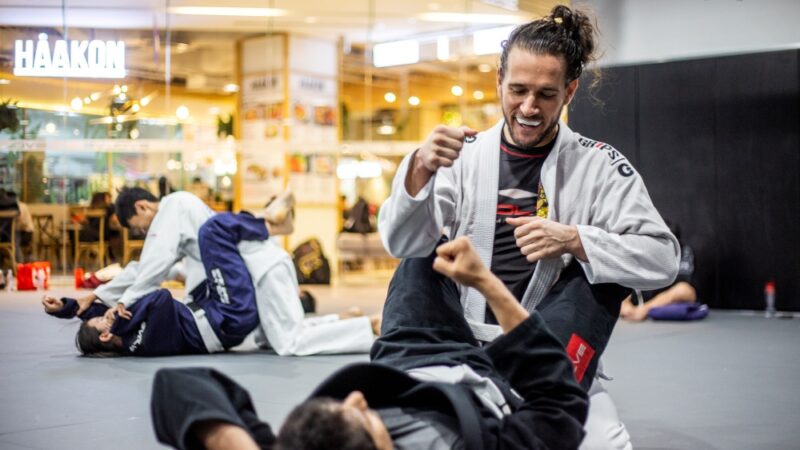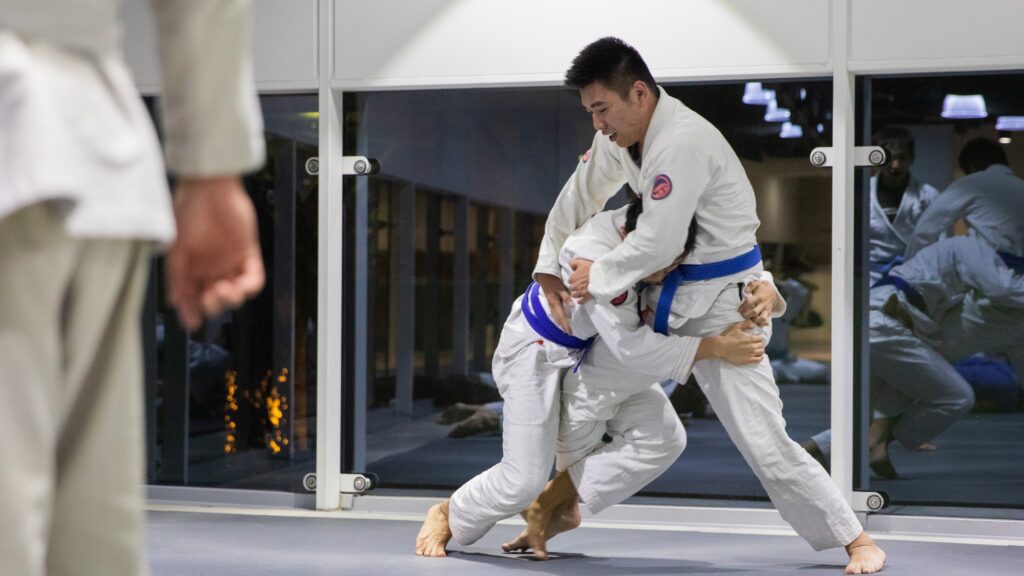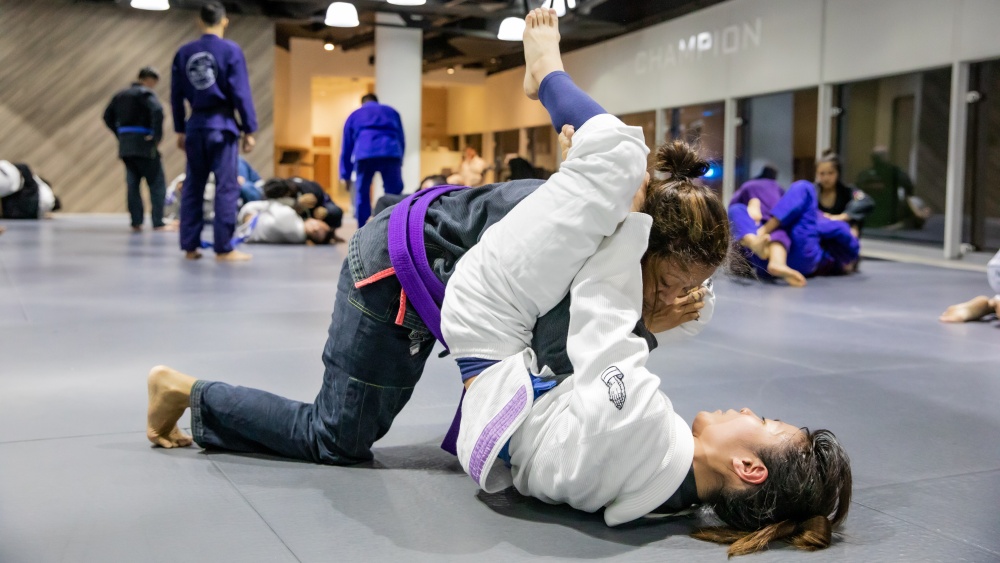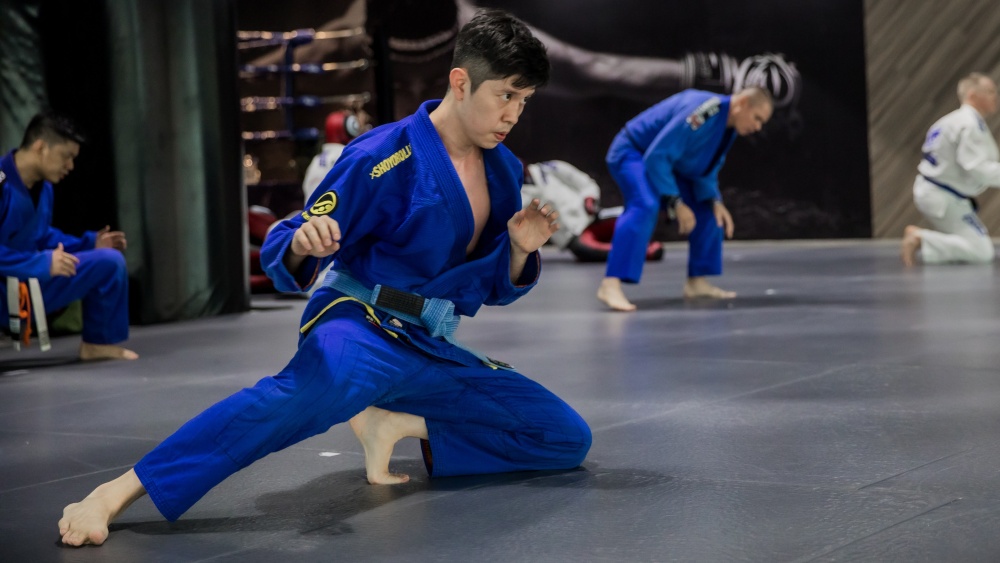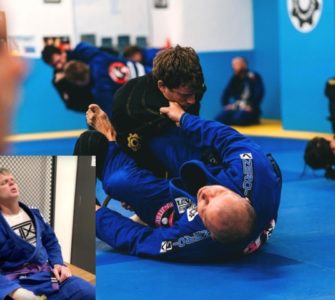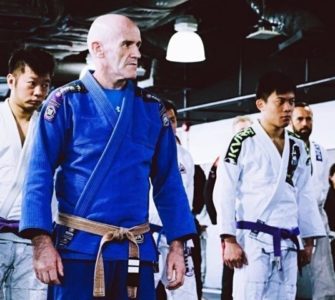Guest post by Evolve MMA, Asia’s premier championship brand for martial arts. It has the most number of World Champions on the planet. Named as the #1 ranked martial arts organization in Asia by CNN, Yahoo! Sports, FOX Sports, Evolve MMA is the top rated BJJ gym in Singapore.
A key ingredient to improve steadily in any endeavor is ensuring that you do the work consistently. If you have trained in Brazilian Jiu-Jitsu, you know that it is a highly technical sport with hundreds, if not thousands, of techniques. It may seem daunting to even reach a basic level of proficiency, and it is true in many ways. Still, with consistent and daily practice, you’ll slowly understand the underlying principles of BJJ.
Brazilian Jiu-Jitsu is a martial art that focuses on ground fighting. It is called the “gentle art” because it emphasizes executing proper technique above all other attributes. To win a match, you must use positional techniques to gain points or simply submit your opponent. This means that you can defeat bigger and stronger opponents if you have a good understanding of the basic tenets of BJJ: leverage, timing, and kuzushi (off-balancing).
However, becoming proficient in BJJ takes a lot of effort. All techniques in BJJ require a good understanding of body mechanics to pull off. This means that not only do you need to remember the steps in a technique, you also need to know when and how it should be done. Many attacks and defenses in BJJ are basically dependent on how your opponent reacts, similar to playing chess but only with your body as the pieces. With this, you must find time to train consistently if you really want to improve.
Consistency Is The Mother Of Mastery
Consistency is the first step towards skill acquisition. It does not matter what endeavor; your skills will eventually improve if you commit time to practice. It is important to plan your approach when you train. Look at your current schedule and assess how many days you can commit to going to the gym. Build training blocks focusing on the techniques that you’d like to learn for a particular duration.
For example, if you’d like to improve your takedowns, create a training block that can last a few months so that you can slowly learn all the underlying principles of the techniques. Once you reach a certain level of proficiency, you can still drill these techniques and move on to other things.
Work on keeping your schedule for as long as your schedule permits. Consistency leads to habits. Once a routine is established, you can have a more manageable routine. Habits form from routines that also become routine. The key to consistency is being disciplined enough to maintain your goal and habits with perseverance. Consistency and determination will take you a long way. Think of it as an investment in yourself.
Routines Are Easier To Maintain Than Goals
Achieving consistency takes time and effort, but it’s worth it in the end. Routines are easier to maintain than goals. This is because a routine is a natural result of a habit that has been established over a period of time. Once you train your mind to work on something consistently, it is easier to get over the initial “slump” of doing the actual activity. If you tend to slack off on training (for whatever reason), start by thinking of just going to class. Make a habit of following your schedule and execute accordingly. In time, you’ll feel less resistance to training because you now have a routine that you follow.
Once your routine clicks, you can then work on focusing on small goals. A good starting point is to not look at the gym as a place for competition. Think of it as a laboratory where you can experiment and train techniques. Maximize the full room every time you train. Make sure to roll with people of different sizes and strengths, work on new techniques while sharpening the ones you already know. It is often said that a solid training session should stimulate both your body and mind.
Don’t focus on the number of times you submit or get submitted. Instead, work on improving your game in all basic positions, both on the offensive and defensive.
How Many Times Do I Have To Train Per Week?
This is a common question most beginners ask. We can devote an entire article to this, but generally speaking, it all depends on your availability and capacity to train. Some may have enough time to train 3-5 times a week. This is great because you will surely progress at a relatively consistent pace. A good rule of thumb is that three training sessions a week is a healthy number for casual grapplers. If you can only commit 1-2 times a week, it’s absolutely fine as well! A few days of training per week is always better than zero training.
You can also supplement your training with grappling drills. It may not be better than actual grappling, but you are still training your body to remember the movements. What’s important here is that you commit to your training schedule as much as possible. Remember that BJJ is a marathon and not a sprint.
Make Sure To Have Fun
At the end of the day, BJJ is a hobby that helps us feel healthy and strong. Whatever your goals are, always keep in mind that having fun is the most important benefit that you can get from training. BJJ, as with most hobbies, helps keep the body healthy and the mind sharp. Training martial arts is perhaps one of the best hobbies you can do. Martial arts training teaches practical concepts like consistency, discipline, toughness, and preparation. BJJ can surely help you become a better person overall!
Final Thoughts
Mindset is an essential aspect of BJJ training. Training the mind allows you to withstand difficulties that are not seen on the mat. Before you can acquire the skills required for any sport, you must allow your mind to objectively assess the task ahead of you and create a plan to achieve your goals. Staying consistent is, on paper, an elementary idea to do. But as we all know, this is not as simple as it seems. Staying consistent is really a skill in itself.

